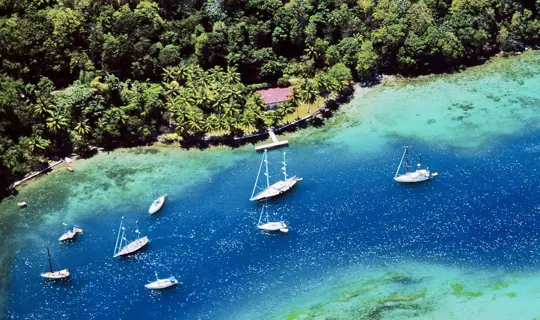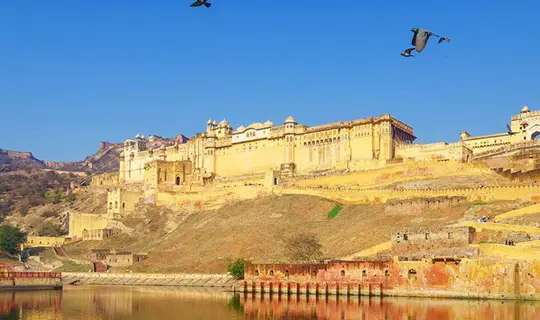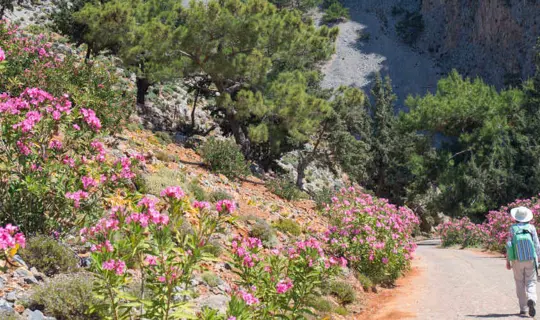From steam trains that puff through the Himalayas to bullet trains that shoot between ancient sites and cosmopolitan cities in China and Japan, rail travel in Asia offers epic adventures.
1. TRAIN TO THE TAJ
Forget those images of trains in India so laden with commuters they take to squatting on the roof. The reality of the rail network on the subcontinent paints a different picture with reserved seating in air-conditioned berths on express trains. And to experience the hubbub of a station in India is one of the country’s most authentic pleasures. But how best to enjoy this vital part of the nation’s infrastructure connecting cities like arteries? Take the scenic train from historic Jhansi to Agra and listen to the sound of tea sellers chanting ‘chai, chai, garam chai’ as they walk down the aisles and you make your way to the magnificent marble mausoleum of the Taj Mahal, of course.
2. TRAVEL TO COOLER CLIMATES
Few trains can claim UNESCO World Heritage status, but the toy trains of the Darjeeling Himalayan Railway are no ordinary means of transportation. Built in 1881, the bold engineering solved many of the problems associated with getting a train across a mountain and provided easier access to the cool climate of the Darjeeling hill station in the Eastern Himalayas where the British beat a retreat to reach their summer hideaways. On route to Ghoom, the highest railway station in India, the tiny steam train chugs over hundreds of bridges and around even more bends. You’ll pass tea plantations and pine forests, along with the manicured garden at Batasia Loop, where views of snow-covered Mount Kanchenjunga looming 28,000 feet (8,500 metres) over the rest of the world is another reward.
3. TIME FOR TEA IN SRI LANKA
Compared to its neighbour, Sri Lanka is a tiny drop on the map. But if you thought that meant epic train journeys are not possible here, then think again. Departing from culture-rich Kandy, home to the famous Temple of the Tooth Relic (said to be the symbolic living representation of Buddha), trains snake slowly over beautiful hills on their way to Nanu Oya, gateway to the tea capital of Nuwara Eliya. Seemingly every slope is covered with lush bushes that produce some of the finest tea in the land. Keep an eye out for tea pickers wearing colourful saris as they pop their heads over the carpet of green leaves. At every station along the way, hawkers will climb aboard and sell you delicious treats, from slices of fresh mango to curry and rice. And once in Nuwara Eliya, you can enjoy a refreshing cuppa on a tour of a tea plantation.
4. SHOOT BACK TO THE PAST
China truly is a land of contrasts, with ancient sites linked by trains so fast and futuristic they almost take your breath away. Launched in 2012, the bullet train from Beijing to Xian reaches speeds of just under 200 mph as it travels 756 miles (1,216 kilometres) across land. You’ll speed past Mount Huashan, steeped in history since a Tao temple was built at the base in the 2nd century BC. Looking serene against the sky, it’s hard to imagine the daredevil hikes this holy mountain now offers. But you’ll soon be at the gateway to the Terracotta Army in Xian, where you could watch a Tang Dynasty show. Just as fast, the high-speed train onwards to Chengdu has cut the journey time dramatically. It used to take a day to reach the ‘City of Leisure,’ but you can now get to the home of the world’s tallest Buddha statue and meet adorable pandas at a breeding centre in a fraction of that time.
5. SPEEDING TO SHRINES
When it comes to the future of train travel, Japan is speeding ahead. The iconic bullet trains – known as ‘shinkansen’ – are an everyday part of life for the Japanese. But for tourists a journey aboard is as essential as seeing Mount Fuji or visiting the many shrines of Kyoto. And speaking of Kyoto, you can soak in a traditional onsen (hot springs bath) in the seaside resort of Atami, and then be in the historic city, known for its Geisha district, tea ceremonies and sake tastings, in just over two hours. The on-board experience is clean, comfortable and ultra-efficient, with late departures and arrivals marked in seconds. Food is best enjoyed by joining the locals and buying the unique ekiben snack boxes which showcase the local cuisine and are sold at stations before you board.
6. INTO THE RICE BOWL
If you hanker after a bygone era when trains powered by steam would trundle the tracks making a satisfying sound, then head to Kota Kinabalu, capital of Sabah in East Malaysia. You can board a restored vintage locomotive from the days when North Borneo was a Crown Colony of Great Britain, and travel to the rice bowl district of Papar. Primarily used to transport goods such as tobacco to Jesselton (the colonial name for Kota Kinabalu), it’s now the turn of tourists to sit back and ride past coastal towns and coffee plantations while buffalo graze at the side of paddy fields and on-board attendants serve you a tiffin-style lunch. And what is there to do in Kota Kinabalu? Sample the unique Kadaza-Dusun cuisine, take a sunset cruise past water villages, or walk amongst the Art Deco mansions on Signal Hill.










